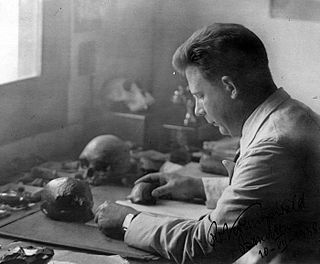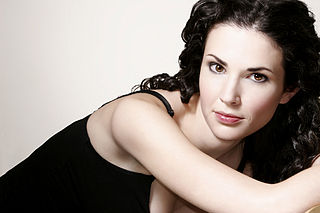A Quote by Luther Burbank
If the creatures with fur/feathers/fins are our brothers in a lower stage of development then their very weakness and inability to protest, demands that man should refrain from torturing them for the mere possibility of obtaining some knowledge which he believes may be to his own interest.
Related Quotes
Man did not address his inquiries to the earth on which he stood until a remarkably late stage in the development of his desire for knowledge. And the answers he received to the questions, "Where do I come from?", "What is man?", although they made him poorer by a few illusions, gave him in compensation a knowledge of his past that is vaster than he could ever have dreamed. For it emerged that the history of life was his history too.
The goal of mankind is knowledge ... Now this knowledge is inherent in man. No knowledge comes from outside: it is all inside. What we say a man 'knows', should, in strict psychological language, be what he 'discovers' or 'unveils'; what man 'learns' is really what he discovers by taking the cover off his own soul, which is a mine of infinite knowledge.
Does the open wound in another's breast soften the pain of the gaping wound in our own? Or does the blood which is welling from another man's side staunch that which is pouring from our own? Does the general anguish of our fellow creatures lessen our own private and particular anguish? No, no, each suffers on his own account, each struggles with his own grief, each sheds his own tears.
I do here in the most solemn and bitter manner curse the Prime Minister of England [sic] for having cumulated all his other betrayals of the national interest and honour, by his last terrible exhibition of dishonour, weakness and gullibility. The depths of infamy which our accurst "love of peace" can lower us are unfathomable.
No one can sense his own weakness is at least a small temptation is not allowed to afflict either his body or his soul. Then, comparing his weakness to the help of God, a man comes to know its magnitude. But whoever does not know that he needs God's help, let him make many prayers. Insofar as he multiplies them, in that measure will he be humbled.
It may well happen that what is in itself the more certain on account of the weakness of our intelligence, which is dazzled by the clearest objects of nature; as the owl is dazzled by the light of the sun. Hence the fact that some happen to doubt about articles of faith is not due to the uncertain nature of the truths, but to the weakness of human intelligence; yet the slenderest knowledge that may be obtained of the highest things is more desirable than the most certain knowledge obtained of lesser things.
Reverence for life . . . does not allow the scholar to live for his science alone, even if he is very useful . . . the artist to exist only for his art, even if he gives inspiration to many. . . . It refuses to let the business man imagine that he fulfills all legitimate demands in the course of his business activities. It demands from all that they should sacrifice a portion of their own lives for others.
Remember that accumulated knowledge, like accumulated capital, increases at compound interest: but it differs from the accumulation of capital in this; that the increase of knowledge produces a more rapid rate of progress, whilst the accumulation of capital leads to a lower rate of interest. Capital thus checks it own accumulation: knowledge thus accelerates its own advance. Each generation, therefore, to deserve comparison with its predecessor, is bound to add much more largely to the common stock than that which it immediately succeeds.







































